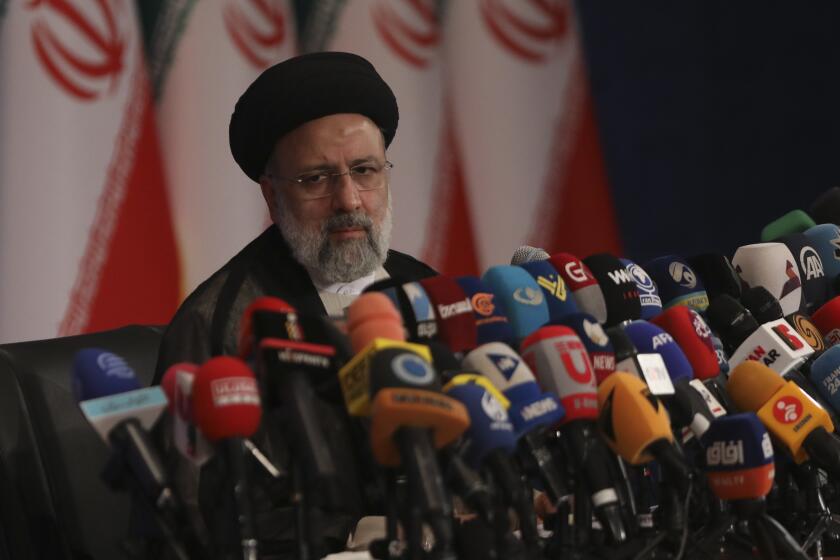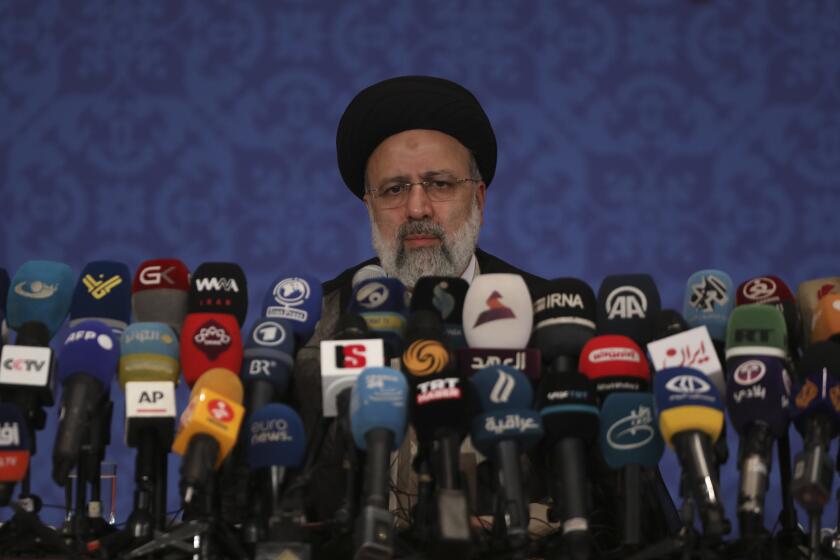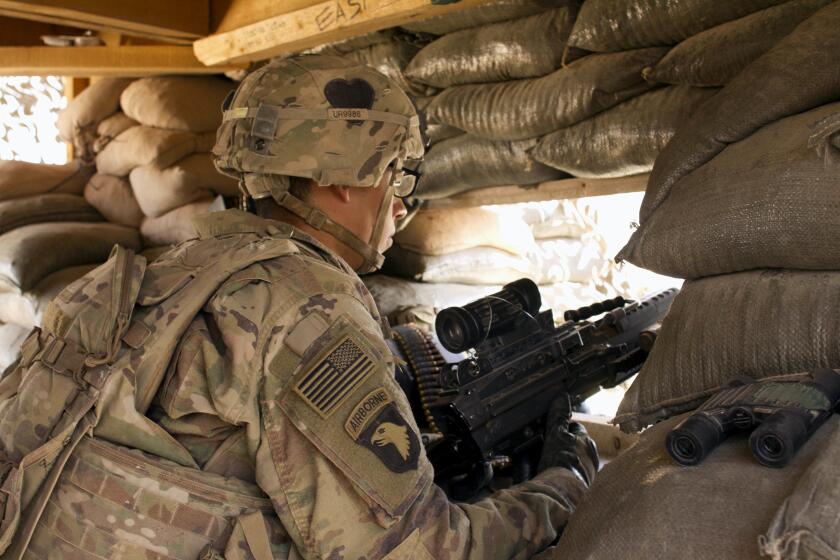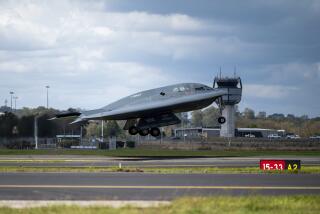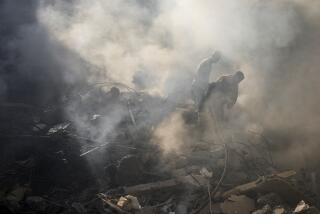U.S. troops in Syria attacked after airstrikes on militias Pentagon says are backed by Iran
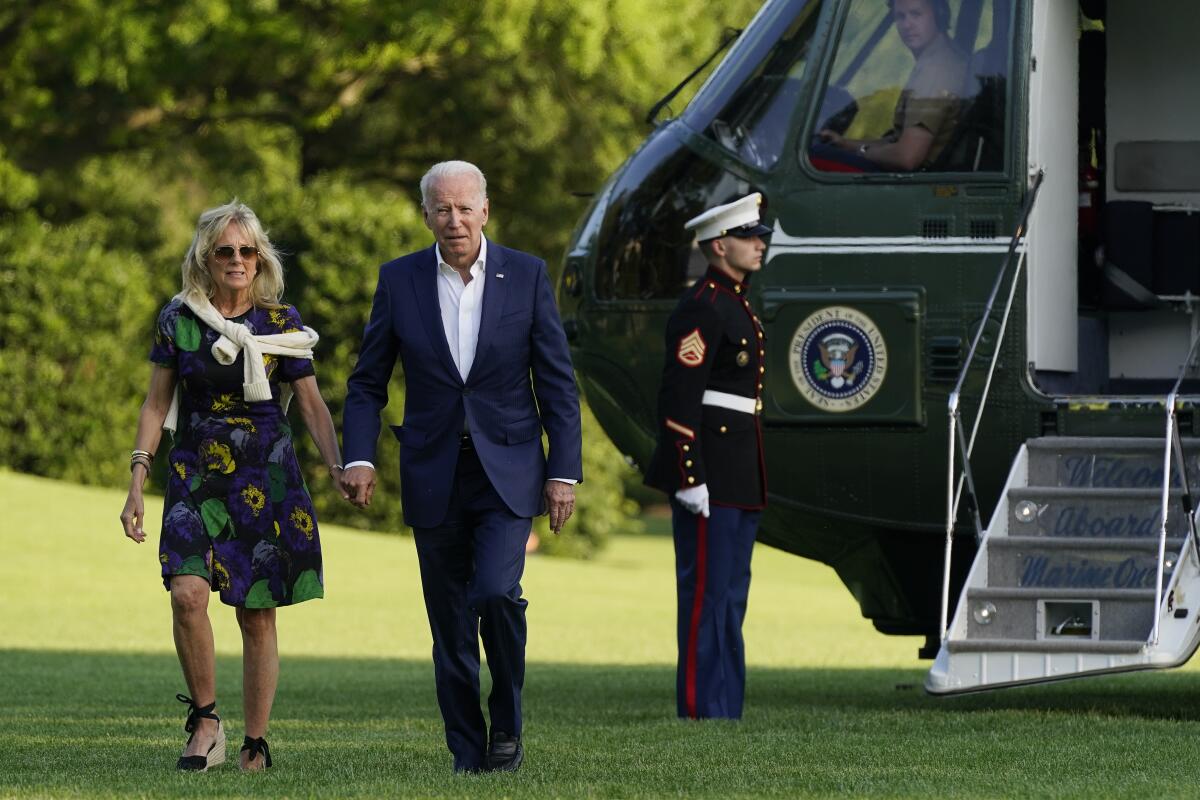
WASHINGTON — U.S. troops in eastern Syria came under rocket attack Monday, with no reported casualties, one day after U.S. Air Force planes carried out airstrikes near the Iraqi-Syrian border against what the Pentagon said were facilities used by Iranian-backed militia groups to support drone strikes inside Iraq.
Iraq’s military condemned the U.S. airstrikes, and the militia groups called for revenge against the United States.
Pentagon Press Secretary John Kirby said the militias were using the facilities to launch unmanned aerial vehicle attacks against U.S. troops in Iraq. It was the second time the administration had taken military action in the region since Biden took over earlier this year.
There was no indication that Sunday’s attacks were meant as the start of a wider, sustained U.S. air campaign in the border region. But a spokesman for the U.S. military mission based in Baghdad, Col. Wayne Marotto, wrote on Twitter on Monday that at 7:44 p.m. local time “U.S. forces in Syria were attacked by multiple rockets.” He said there were no injuries and that attack damage was being assessed.
Marotto later tweeted that, while under rocket attack, U.S. forces in Syria responded in self-defense with artillery fire at the rocket-launching positions.
Kirby said the U.S. military targeted three operational and weapons storage facilities — two in Syria and one in Iraq. In its release of videos of the strikes by Air Force F-15 and F-16 aircraft, the Pentagon described one target as a coordination center for the shipment and transfer of advanced conventional weapons.
He described the airstrikes as “defensive,” saying they were launched in response to the attacks by militias.
“The United States took necessary, appropriate and deliberate action,” Kirby said, “designed to limit the risk of escalation — but also to send a clear and unambiguous deterrent message.”
The Pentagon said the facilities were used by Iranian-backed militia factions, including Kata’ib Hezbollah and Kata’ib Sayyid al-Shuhada.
President Biden’s negotiators are moving toward renewing former President Obama’s 2015 nuclear deal with Iran, a deal renounced by former President Trump.
A Pentagon spokeswoman, Navy Cmdr. Jessica McNulty, said Monday that each strike hit its intended target and that the U.S. military was still assessing the results of the operation.
“The targets selected were facilities utilized by the network of Iran-backed militia groups responsible for the series of recent attacks against facilities housing U.S. personnel in Iraq,” McNulty said. She said those groups had conducted at least five such “one-way” drone attacks since April.
Secretary of State Antony J. Blinken, speaking to reporters in Rome on Monday, said Biden had been clear that the U.S. would act to protect American personnel.
“This action in self-defense, to do what’s necessary ... to prevent further attacks, I think sends a very important and strong message. And I hope very much that it is received,” he said. “I think we’ve demonstrated with the actions taken last night, and actions taken previously, that the president is fully prepared to act and act appropriately and deliberately to protect us.”
American authorities have taken down a range of Iran’s state-linked news websites they accuse of spreading “disinformation.”
Two Iraqi militia officials told the Associated Press in Baghdad that four militiamen were killed in the airstrikes near the border with Syria. Both spoke on condition of anonymity because they were not authorized to give statements. They said the first strike hit a weapons storage facility inside Syrian territory, where the militiamen were killed. The second strike hit the border strip.
The Syrian Observatory for Human Rights, a group based in Britain that closely monitors the Syrian conflict through activists on the ground, reported that at least seven Iraqi militiamen were killed in the airstrikes.
The Iranian-backed Iraqi militia factions vowed revenge for the attack and said in a joint statement that they would continue to target U.S. forces. “We ... will avenge the blood of our righteous martyrs against the perpetrators of this heinous crime, and with God’s help we will make the enemy taste the bitterness of revenge,” they said.
Start your day right
Sign up for Essential California for the L.A. Times biggest news, features and recommendations in your inbox six days a week.
You may occasionally receive promotional content from the Los Angeles Times.
The Popular Mobilization Forces, an Iraqi state-sanctioned umbrella of mostly Shiite militias — including those targeted by the U.S. strikes — said their men were on missions to prevent infiltration by Islamic State and denied the presence of weapons warehouses.
Iraq’s military condemned the strikes as a “blatant and unacceptable violation of Iraqi sovereignty and national security.” It called for avoiding escalation but also warned against turning Iraq into an “arena for settling accounts” — a reference to the U.S. and Iran. It represented a rare rebuke by the Iraqi military of U.S. airstrikes.
In Iran, foreign ministry spokesman Saeed Khatibzadeh accused the U.S. of creating instability in the region.
“Definitely, what the U.S. is doing is disrupting the security of the region,” he said Monday.
The mission of U.S. forces in Iraq has shifted to training and advisory roles, U.S. and Iraq officials say, but there’s no withdrawal agreement.
U.S. military officials have grown increasingly alarmed over drone strikes targeting U.S. military bases in Iraq, which became more common since a U.S.-directed drone killed Iranian Gen. Qassem Suleimani near the Baghdad airport last year. Iraqi militia leader Abu Mahdi Muhandis was also killed in the attack.
The strike drew the ire of mostly Shiite Iraqi lawmakers and prompted parliament to pass a nonbinding resolution to pressure the government to oust foreign troops from the country.
Sunday’s strikes marked the second time the Biden administration launched airstrikes along the Iraq-Syria border region. In February, the U.S. launched airstrikes against facilities in Syria, near the Iraqi border, that it said were used by Iranian-backed militia groups.
The Pentagon said those strikes were retaliation for a rocket attack in Iraq in February that killed one civilian contractor and wounded a U.S. service member and other coalition troops.
Biden’s top envoy, Secretary of State Antony Blinken, discusses climate change and the COVID-19 pandemic with Pope Francis in a Vatican meeting.
At that time, Biden said Iran should view his decision to authorize U.S. airstrikes in Syria as a warning that it could expect consequences for its support of militia groups that threatened U.S. interests or personnel.
“You can’t act with impunity. Be careful,” Biden said when a reporter asked what message he had intended to send
More to Read
Sign up for Essential California
The most important California stories and recommendations in your inbox every morning.
You may occasionally receive promotional content from the Los Angeles Times.
